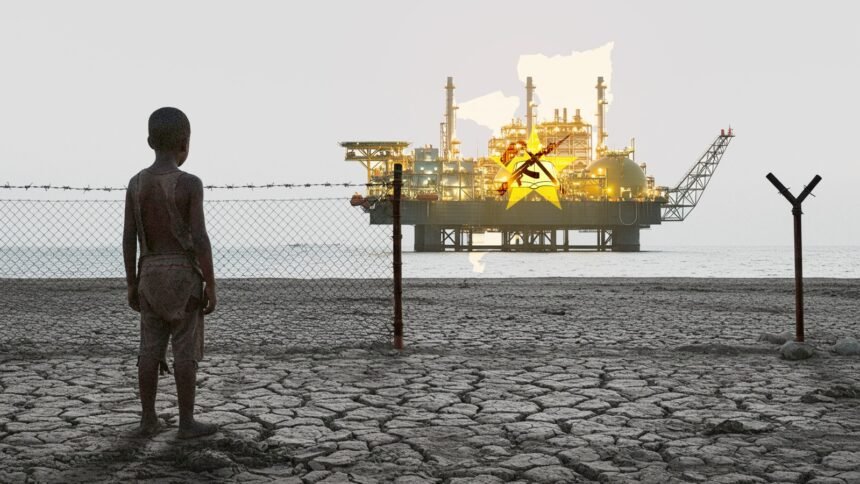For years, Mozambique’s Cabo Delgado province was a name synonymous with violence, extremism, and humanitarian disaster. It was the kind of place that only made the headlines when jihadists torched villages, or when humanitarian agencies warned of looming famine. But lately, a new storyline is emerging—one where multibillion-dollar liquefied natural gas (LNG) projects are back on track, international investors are tiptoeing back in, and the Mozambican government is trying to prove it can juggle both security and economic growth.
Cabo Delgado is home to one of Africa’s most valuable energy deposits—an estimated 100 trillion cubic feet of natural gas off the northern coast. For a country with modest GDP numbers and persistent poverty, this is nothing short of a potential game-changer. The initial rush of optimism in the early 2010s saw global giants like TotalEnergies, ExxonMobil, and Eni betting big on offshore gas fields. Mozambique was suddenly a new frontier in the global LNG race.
Then came the insurgency.
In 2017, a local jihadist movement known as Ansar al-Sunna launched a violent campaign in Cabo Delgado. With shadowy ties to the Islamic State, the insurgents quickly overwhelmed poorly equipped local forces, captured towns, and displaced nearly a million people. In 2021, the violence escalated to the point that TotalEnergies declared force majeure on its $20 billion LNG project—Africa’s largest private investment at the time—effectively pulling the plug on Mozambique’s gas dreams.
Fast forward to 2025, and the mood is cautiously optimistic. TotalEnergies has signaled a return to the Afungi Peninsula, where its LNG infrastructure is based. The French energy giant says security has improved, thanks in part to a military intervention led by Rwanda and the Southern African Development Community (SADC). These regional forces have worked closely with Mozambique’s own military to push insurgents out of key urban areas and restore some semblance of state control.
President Filipe Nyusi, who has staked much of his legacy on turning natural gas into national development, has been on a global charm offensive. In recent months, he’s spoken at energy summits, courted investors, and pushed the narrative that Cabo Delgado is not only stabilizing but also open for business. Whether the world believes him remains to be seen—but the wheels of re-engagement are turning.
On the ground, the situation remains tense. While insurgent attacks have decreased significantly in frequency, they haven’t disappeared. Many parts of rural Cabo Delgado remain inaccessible, and humanitarian conditions remain precarious. Over a million people are still displaced, and rebuilding their lives—let alone their homes—is a slow and underfunded process. For many Mozambicans, especially in the north, the promises of gas-fueled prosperity feel distant and abstract.
Still, the economic stakes are hard to ignore. Mozambique stands to become the third-largest LNG exporter in Africa, after Nigeria and Algeria. Global demand for LNG is booming, driven by Europe’s efforts to reduce dependency on Russian gas and Asia’s hunger for cleaner fuels. If Mozambique can navigate the security minefield, it could rake in billions in state revenue, create thousands of jobs, and finally build the kind of infrastructure it has long lacked.
But herein lies the catch: development must not come at the cost of local alienation. One of the root causes of the insurgency was the deep sense of marginalization felt by Cabo Delgado’s mostly Muslim population, who have historically been sidelined by the central government in Maputo. If gas projects simply enrich elites and foreign firms while locals watch from the sidelines, the resentment that fueled extremism in the first place could return with a vengeance.
To prevent that, there’s growing pressure on both the government and energy companies to deliver inclusive development. That means building roads, schools, and hospitals—not just pipelines and processing plants. It means hiring locals, not flying in foreign workers. And it means genuinely listening to communities that have borne the brunt of violence for the past eight years.
Civil society groups and watchdog organizations are already sounding alarms. They warn that without transparency and accountability, the LNG windfall could follow the all-too-familiar African pattern: vast resource wealth enriching a few, while ordinary citizens remain trapped in poverty. Mozambique, they argue, has a rare second chance—and it must not waste it.
Meanwhile, global investors are watching closely. TotalEnergies’ cautious return is being treated as a bellwether. If the French company successfully resumes operations without major incidents, it could unlock the confidence needed for others—like ExxonMobil and Eni—to restart their own stalled projects.
The next few months will be crucial. The Mozambican government must not only keep Cabo Delgado secure but also prove that it has the political will to ensure equitable development. That means resisting the temptations of short-term gains and focusing on long-term stability.
For now, Cabo Delgado remains a region in transition—no longer a warzone, but not yet a success story. The gas is still there, buried beneath the Indian Ocean, waiting to be transformed into power, wealth, and opportunity. Whether Mozambique can turn that promise into reality without repeating the mistakes of other resource-rich nations will determine not just the future of Cabo Delgado, but the soul of the entire country.










